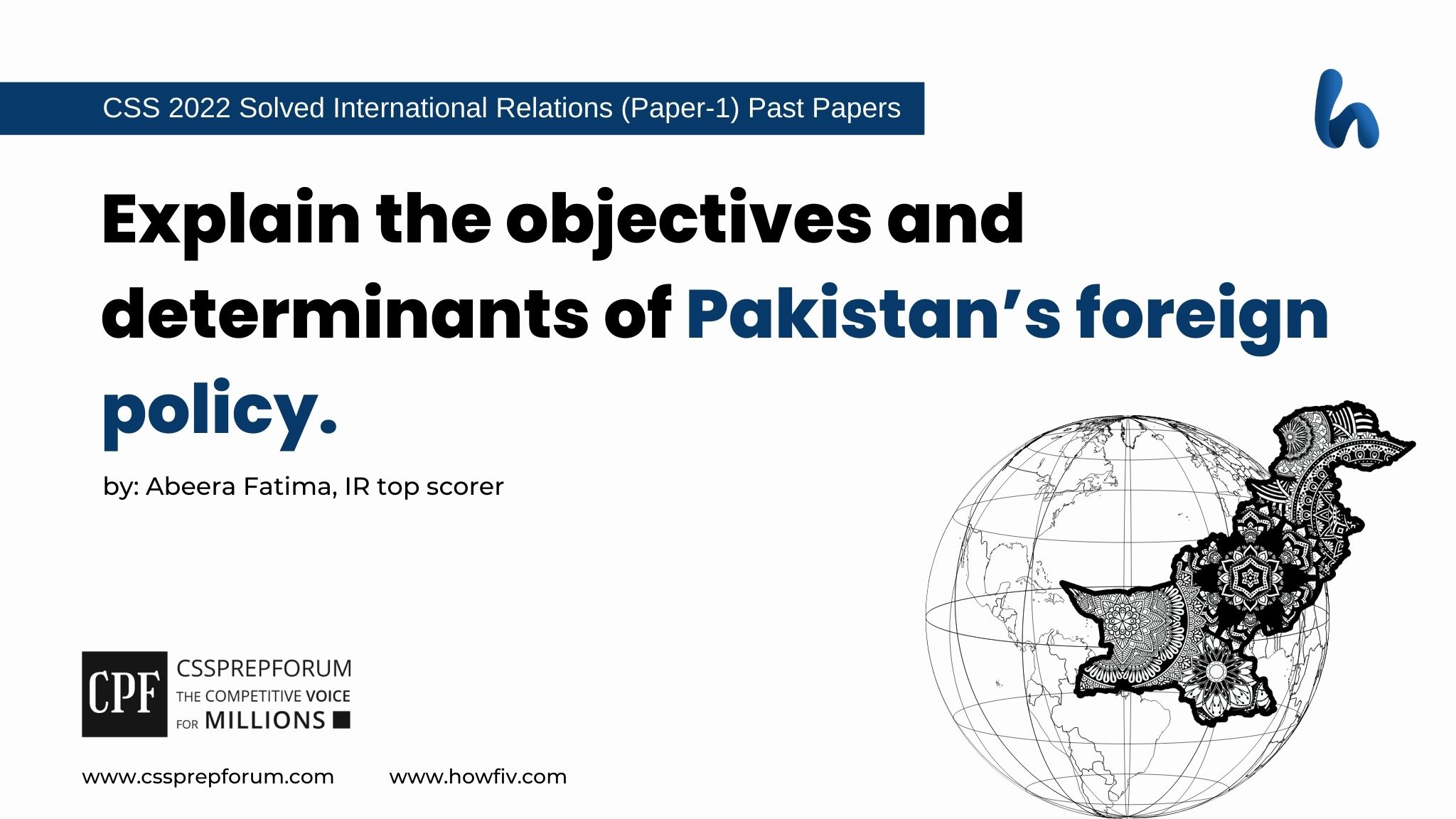CSSInternational Relations-I
Q4. Explain the objectives and determinants of Pakistan’s foreign policy. 2022

Pakistan’s foreign policy is shaped by a combination of objectives and determinants that reflect its national interests, security concerns, regional dynamics, and historical context. The key objectives and determinants of Pakistan’s foreign policy can be summarized as follows:
- Security: Ensuring national security is a primary objective of Pakistan’s foreign policy. Given its challenging neighborhood, including longstanding tensions with India and the ongoing conflict in Afghanistan, Pakistan aims to maintain a secure environment both internally and externally. This objective influences its approach to regional alliances, defense capabilities, and counterterrorism cooperation.
- Territorial Integrity and Kashmir Issue: Pakistan seeks to protect its territorial integrity and address the Kashmir dispute with India. Kashmir remains a central issue in Pakistan’s foreign policy, and it aims to garner international support for the resolution of the conflict based on United Nations resolutions, which call for a plebiscite to determine the region’s future.
- Economic Development: Pakistan aims to foster economic development and address its socio-economic challenges. It seeks foreign investments, trade partnerships, and economic cooperation to support its development goals. Engaging with regional and global economic forums and organizations is an important aspect of Pakistan’s foreign policy.
- Strategic Alliances and Regional Dynamics: Pakistan seeks strategic alliances to balance power dynamics in the region and ensure its security interests. It has historically maintained close ties with China, particularly through the China-Pakistan Economic Corridor (CPEC), which aims to enhance economic cooperation and connectivity between the two countries. Pakistan also maintains partnerships with other countries, including the United States and Saudi Arabia, to address its security and economic concerns.
- Muslim World and OIC: As an Islamic country, Pakistan attaches significance to its relations with other Muslim-majority nations. It actively engages in the Organization of Islamic Cooperation (OIC) and supports causes related to Muslim unity, Palestinian rights, and combating Islamophobia. Pakistan aims to leverage its position within the Muslim world to advance its interests and foster solidarity among Muslim nations.
- Non-Aligned Movement and Multilateralism: Pakistan upholds the principles of non-alignment and multilateralism in its foreign policy. It seeks to maintain an independent stance and engage with a diverse range of countries while advocating for a multipolar world order. Pakistan actively participates in multilateral forums like the United Nations and regional organizations like the South Asian Association for Regional Cooperation (SAARC).
- Afghan Peace Process: Pakistan has been actively involved in facilitating the Afghan peace process. Given its geographical proximity and historical ties with Afghanistan, Pakistan seeks a stable and peaceful neighbor. Pakistan’s foreign policy aims to support an inclusive Afghan-led and Afghan-owned peace process that ensures the stability and security of the region.
It is important to note that Pakistan’s foreign policy is not static and can be influenced by domestic political dynamics, leadership preferences, geopolitical shifts, and global developments. While these objectives and determinants provide a general framework, specific policies and approaches may evolve in response to changing circumstances and priorities.